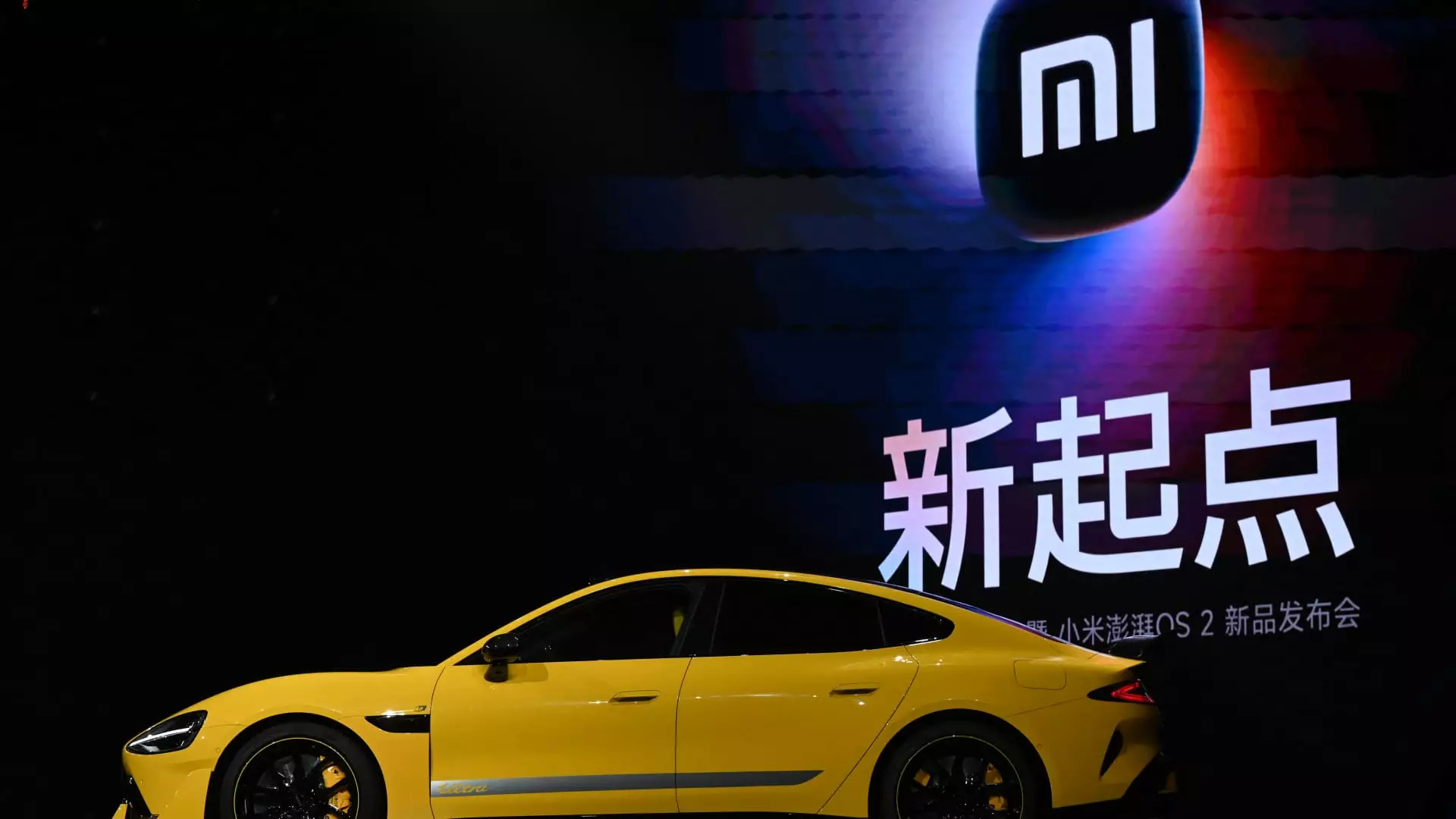In the bustling landscape of electric vehicles (EVs), Xiaomi is rapidly solidifying its position as a formidable player. Recently, the company announced it had delivered more than 20,000 units of its SU7 electric vehicle in October alone, marking a significant step in its strategy to penetrate a highly competitive market dominated by established giants like Tesla. This article analyzes Xiaomi’s performance, market strategy, and future trajectory in the electric vehicle industry.
Xiaomi’s foray into the EV sector began in earnest in 2021, with the company laying the groundwork for a dedicated manufacturing facility that would cater to its ambitious automotive goals. Aiming to deliver 100,000 SU7 vehicles by the end of November, Xiaomi is demonstrating a pace of production that eclipses its Chinese competitors, Xpeng and Nio, both of which took several years to reach the same milestone. Notably, Xiaomi’s approach is not only ambitious but reflects a broader trend among tech companies seeking to diversify their portfolios in the face of fierce competition and market saturation in their primary fields.
With over 75,000 SU7 units delivered to date, Xiaomi’s ability to ramp up production rapidly showcases its operational efficiency and market adaptability. Particularly telling is the SU7’s price positioning: introduced at around $4,000 less than the Tesla Model 3, it targets cost-sensitive consumers while still promising quality and innovation.
The EV landscape in China is particularly competitive, with a plethora of homegrown brands. For instance, Xpeng recently hit a record monthly delivery of over 20,000 cars, a figure bolstered by its accessible Mona brand. Conversely, Nio has faced challenges in maintaining delivery numbers above 20,000 per month, indicating fluctuating consumer demand and perhaps issues with supply chain management.
Tesla remains a robust benchmark in the market, with its Model Y achieving the highest sales figures of any battery-powered car in September—48,202 units sold. This places pressure on Xiaomi to not only keep up with production but establish a brand loyalty among consumers who may be predisposed to Tesla’s reputation for innovation and quality.
Strategic Innovations: SU7 Ultra and Beyond
Xiaomi’s strategic vision is evident in its recent announcement regarding the SU7 Ultra, a high-end sports variant set to launch in March 2025 with an initial price tag of around $114,304. Notably, the SU7 Ultra has already witnessed an impressive response, with over 3,600 preorders in just 10 minutes. This early interest underscores Xiaomi’s growing brand allure, particularly among premium consumers.
The marketing strategy surrounding the SU7 Ultra also capitalizes on performance features, particularly its recent accolade as the fastest four-door sedan around Germany’s Nurburgring racetrack. Such achievements not only enhance brand prestige but position Xiaomi effectively within niche markets looking for performance-oriented electric vehicles.
Analysts have reacted favorably to Xiaomi’s performance, with Citibank upgrading its forecasts for both the company’s car deliveries and smartphone shipments. Expectations now signal a delivery target of 250,000 cars for the next year, reflecting a strong growth trajectory that could redefine shareholder perceptions of Xiaomi as merely a consumer electronics brand.
Furthermore, Xiaomi’s entrance into the EV market is complemented by its continuous innovation in smartphone technology. The recent launch of the flagship Mi 15, which features Qualcomm’s newest chipset, demonstrates Xiaomi’s dual commitment to tech leadership in both the smartphone and automotive sectors.
Xiaomi’s foray into electric vehicles epitomizes a transformative moment in the automotive industry. With its strategic pricing, rapid production capabilities, and innovative product offerings, the company signifies that it is not merely entering the EV market; it’s poised to thrive. However, it must navigate the complexities of consumer loyalty and fierce competition. As Xiaomi looks to expand globally in the coming years, the success of the SU7 and its future variants will be critical in establishing its legacy as a significant player in the global electric vehicle arena.

